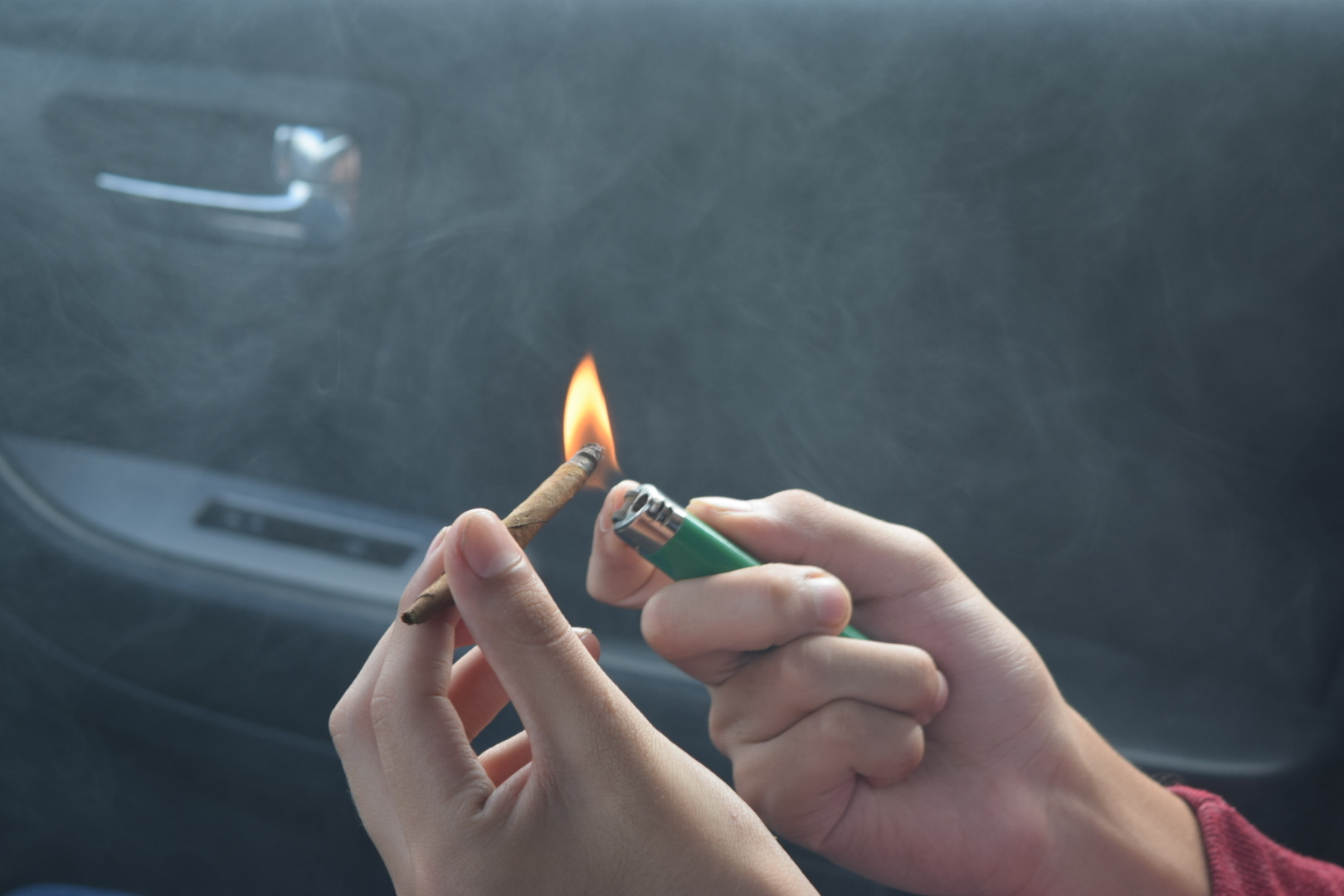

Back when I got high all day every day, I told myself that it was better to drive stoned than drunk. Stoned people drive almost too carefully, I reasoned, because they’re so aware of the fact that they’re baked and are so paranoid about getting caught. I persuaded myself that it might not be a problem—at all—to drive stoned.
Then I sobered up, hopefully for good, nine months ago. Those illusions puffed away. In the golden age of cannabis, where pot is being touted as a cure for all human ills, its negative effects are drastically underplayed. And there’s no greater negative to marijuana than driving stoned: it’s dangerous as hell. If you really think it’s safe to drive stoned, then you’ve either never been stoned, have never driven, or are lying to yourself. But you’d be hard-pressed to figure that out through all the murky details.
The media often confuses the issue. A recent headline on marijuana.com read, “Medical-Marijuana Laws Don’t Raise Or Lower Fatal Car Crashes, Study Finds”; admittedly, that’s from an activist site with skin in the game—but a local Las Vegas news station not in the pocket of Big Weed recently reported that traffic deaths actually dropped by 10 percent in the Nevada’s first year of recreational marijuana legalization. What to do with that news?
Meanwhile, in Colorado, traffic fatalities “linked” to marijuana are up sharply, but those studies can’t say for sure that marijuana is the cause, because many of the drivers tested were also drunk. A Washington state study further clouds the skies by saying that, of study participants who admit to smoking weed within three hours of driving, more than 45 percent also admit to “binge drinking.” Often, other drugs are also involved.
This seems like a complicated topic, with lots of side issues to go along with the main issue. How long does THC, the intoxicating compound in most marijuana, remain in the bloodstream? How much THC was in the marijuana consumed? At what point are people really stoned—and when are people just a little stoned? How much indicates impairment? At what level of impairment does driving become dangerous? And so on.
But at the core of all this debate should sit one simple rule, which I deeply regret not following over the decades that I abused marijuana: Don’t drive if you’re even slightly stoned. Just don’t. Not even in an emergency. Maybe if you had a couple of hits and five or six hours have passed, you’ll be OK. Maybe. I’m not in charge of these things. I don’t know. All I know is that I’m lucky I never got a ticket, or went to jail. And that I’m still alive.
Into this fray has materialized the stoned driver’s worst nightmare: the marijuana breathalyzer. Mike Lynn, a former venture capitalist who’s also an emergency-room doctor and a deputy reserve SWAT team officer (basically the living definition of a narc) claims that his device can detect whether or not the driver has consumed THC in the last two hours. It also doubles as an alcohol breathalyzer.
Note that it doesn’t measure the amount of THC in a driver’s bloodstream. That number does mean anything because THC dissolves in fat, which is why pot cookies get you so high and also why evidence of cannabis stays in the body for up to a month.
Lynn says his machine can measure parts of THC in the breath per trillion, necessary because THC is so diffuse.
“It’s kind of like putting together more than a dozen Olympic size swimming pools and saying, ‘Hey, go find those 10 specific drops of water in those 10 pools put together,” he told NPR.
Still, Lynn isn’t a magician, even an amateur one. Tons of questions remain. What percentage of THC in the breath is too high to drive safely? Since marijuana affects everyone differently, how can police determine if people are in a condition to drive? If alcohol is also involved, and the driver is intoxicated, how do you parse out the blame?
But consumption isn’t at issue here—after all, cannabis has been legalized recreationally in seven states and medically in 30 states; just like it’s not illegal to drink too much, in many places now it’s not illegal to get mega-baked. The issue is driving. Individual states will have to make those determinations, as they do with most legal matters. Even then, at the moment there’s no quantitative measure for pot that can stand up in a court of law.
So let’s go qualitative. Have you ever been stoned? If yes, have you ever driven stoned? If yes, should you have been driving stoned? In your heart of hearts, you know that the answer is: You shouldn’t get high and drive, no matter what the law or an untested THC breathalyzer might say.
Don’t be like I was. Don’t drive stoned. Someday, the system will probably figure out a way to catch you. When that happens, suddenly legalized cannabis will seem a lot less cool.
This concludes this test of the Marijuana Emergency Broadcast System.